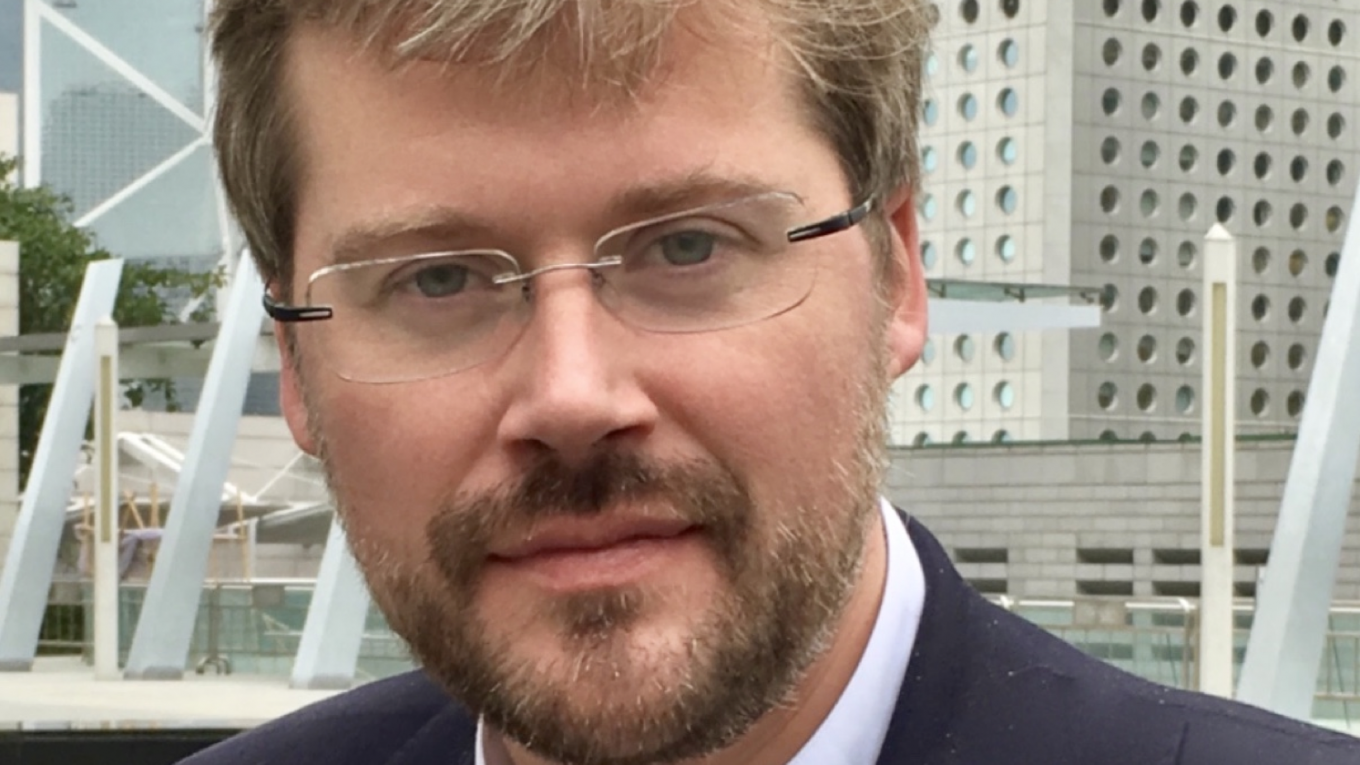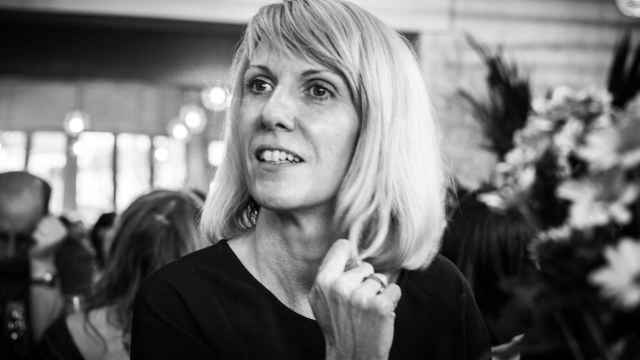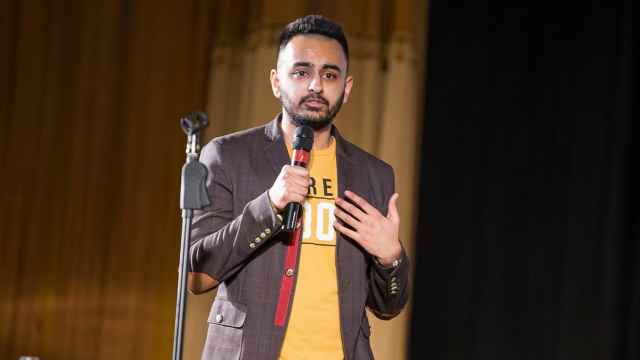The son of an IMF employee, Tom Blackwell moved to Chisinau, the Moldovan capital, as a teenager in 1992. His experience there dropped him feet-first into the Russian-speaking world and he has not looked back since. Tom is now CEO of the EM (Emerging Markets) corporate/strategic communications (PR) firm, which is working to expand Moscow’s business networks into Hong Kong and Beijing with the opening of a new Chinese branch.
My father worked for the IMF so I got a real taste for the post-Soviet world from an early age. We moved to Moldova when I was a teenager and I began studying Russian, and then we moved to Ashgabat (the Turkmen capital) before I started working in Moscow. I’ve been based here [in Russia] now for over 12 years.
[The annexation of] Crimea changed the world. Many Western business professionals left Russia and the market became less saturated. Political and economic outreach to China soon followed as part of the famous ‘pivot’ and companies began working with an eye to the east. State companies in particular felt compelled to spread into the Chinese market.
Moscow is a city of cycles and it constantly changes. The 2005-2007 period, for example, was an absolute boom market where every investor felt like a genius. Seventy percent growth per year was not uncommon. But after the crash in 2008 a new cycle started and Moscow became a city of solidarity. People were losing jobs and facing salary cuts, but everyone was united against a seemingly abstract enemy. Crisis parties, held in people’s homes, were happening everywhere as people could no longer afford to go to bars. The current crisis is more complicated and it will last much longer. There is a genuine sense of tension this time around, everyone feels it.
My favorite part of the city is Patriarshy – where I’ve been a resident for six years. It’s a stereotype that foreigners love this place but it isn’t unjustified. It’s one of those rare places in town where you can walk around on foot without the hectic atmosphere.
I like the food in Moscow. But I must confess that I avoid all places where the menu is dependent on European-style cheeses – they haven’t quite cracked the secret – so it’s better to stick with food such as Georgian that relies on its own local products. That being said, local production is growing and it’s interesting to watch the way they are adapting to the crisis. In five years they’ll have great cheese, though it’s a high price to pay!
The flavor of the city is undergoing an exciting transition. Whenever you have a mass exodus of one group (in this case Westerners) there’s always a cast of new characters and opportunities for innovation. The Asian tourist market is seeing a boom right now for example, and you can see this with Chinese signs in the international airports – this is a major signal. Now Chinese and pan-Asian restaurants are popping up around the city.
The thing that keeps me here is the pace of life. For better or worse, Moscow’s frantic energy is addictive. Part of it is its entrepreneurial spirit. You can be 20 years old with limited experience, but if you’re talented and have big ideas you can get your foot in the door. There are no sharply defined notions of “who is good” like there are in the West. As a result you can move very quickly within a company and get responsibilities within a year you would never get without at least four years experience in the UK – where it’s generally a slow process building trust.
A Message from The Moscow Times:
Dear readers,
We are facing unprecedented challenges. Russia's Prosecutor General's Office has designated The Moscow Times as an "undesirable" organization, criminalizing our work and putting our staff at risk of prosecution. This follows our earlier unjust labeling as a "foreign agent."
These actions are direct attempts to silence independent journalism in Russia. The authorities claim our work "discredits the decisions of the Russian leadership." We see things differently: we strive to provide accurate, unbiased reporting on Russia.
We, the journalists of The Moscow Times, refuse to be silenced. But to continue our work, we need your help.
Your support, no matter how small, makes a world of difference. If you can, please support us monthly starting from just $2. It's quick to set up, and every contribution makes a significant impact.
By supporting The Moscow Times, you're defending open, independent journalism in the face of repression. Thank you for standing with us.
Remind me later.






